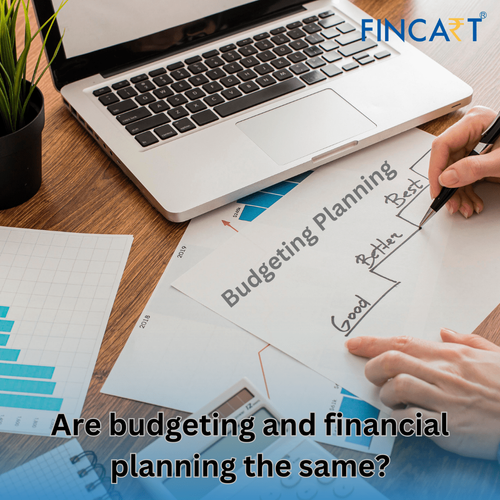Table of Contents
ToggleThere were two friends, who both had good jobs and earned decent salaries. Rahul loved to live in the moment, while the other friend, was always thinking about the future.
Rahul firmly believed in spending money as soon as he earned it. He would often buy the latest gadgets, eat out at expensive restaurants, and splurge on clothes and accessories. He didn’t keep track of his spending and often found himself running out of money before the end of the month.
Riya, on the other hand, had a different approach. She was a firm believer in budgeting and financial planning. She would create a monthly budget and keep track of her expenses. She would set aside a portion of her salary for savings and investments, and would only spend money on things that were essential or added value to her life.
One day, Rahul found himself in a financial crisis. Credit cards were almost maxed out for which personal loan was taken, the addition of more & more EMIs. He had spent all his money on frivolous things, and now he needed to pay off a debt. He turned to Riya for help, who suggested that he should create a budget, start saving & get on board with investments/financial planning.
Budget was a term he was aware of, but financial planning was a concept that left him pondering!
Isn’t budget & financial planning the same concept?
Doesn’t financial planning means planning a budget & following it, he asked.
This is what Riya explained to him!
What do you mean by budgeting?
The process of budgeting is to track your income and expenses and create a spending plan. You can manage your cash flow effectively and stay within your means. A budget helps you identify areas where you may be overspending and adjust your spending habits accordingly. For short-term financial management, such as paying bills, saving for a vacation, or building an emergency fund, budgeting is a great tool.
What do you mean by Financial Planning?
Setting long-term financial goals and creating a roadmap to achieve them is the process of financial planning. The process involves analyzing your current financial situation, setting financial goals, and taking steps to achieve them.
Among the topics covered by financial planning are retirement planning, estate planning, tax planning, and investment management. Making informed decisions about your money is easier when you plan for the future.
The purpose of financial planning is to figure out how to get from point A (where you are now) to point B (where you want to be at some point in the future, whether near, medium, or long). An effective plan will consider several factors, but it usually covers the following:
Protecting your finances
Your strategy for achieving big goals through money growth
Debt repayment plan
What are your retirement plans?
With your money, what kind of legacy do you hope to leave behind
Financial planning vs. budgeting – What’s the difference?
Financial planning and budgeting are critical components of a healthy financial life. A budget helps you manage your day-to-day finances, but financial planning provides a broader perspective and helps you plan for the future. The difference between budgeting and financial planning can help you create an effective long-term and short-term financial strategy. Here are some key differences:
Goals and objectives
The goal of budgeting is to maintain or eliminate certain spending habits. You can accomplish this by spending less on entertainment or putting more money into your savings account. A financial planner focuses on achieving long-term financial goals, such as paying off debt or purchasing a home.
Continuity of progress
Your budgeting progress may be tracked monthly, weekly, or even daily because it is based on your spending habits. The frequency of this tracking is far greater than how often you might track your progress toward your financial goals. As a result of financial planning, you track your progress toward your larger financial goals quarterly, semiannually, or every six months.
The level of detail
Considering how much you plan to spend on each category when budgeting can be helpful. Spending limits must be adhered to, and you may need to reduce expenses by a few dollars every month since expenses can accumulate. The level of detail required for financial planning is rarely the same. There is less benefit to calculating exact amounts when the goals are much bigger and include more variables.
So what is the question, will Rahul take Riya’s suggestion into consideration?
Rahul was impressed by Riya’s knowledge. He realized he needed to think beyond the short term and plan for his future. He started investing his money in mutual funds and other investment options that would give him good returns in the long run.
Over time, he learned the importance of budgeting and financial planning. He realized that by being mindful of his spending and investing his money wisely, he could achieve his financial goals and live a comfortable life. He was grateful to Riya for showing him the way and for helping him get his finances back on track.
Also Read: Financial Planning Objectives
Bottom Line:
In conclusion, Rahu and Riya’s story highlights the importance of budgeting and financial planning. While Rahul was living in the moment and spending money carelessly, Riya was planning for her future and making smart financial decisions. By following her advice, he was able to turn his financial situation around and set himself up for a brighter future.




